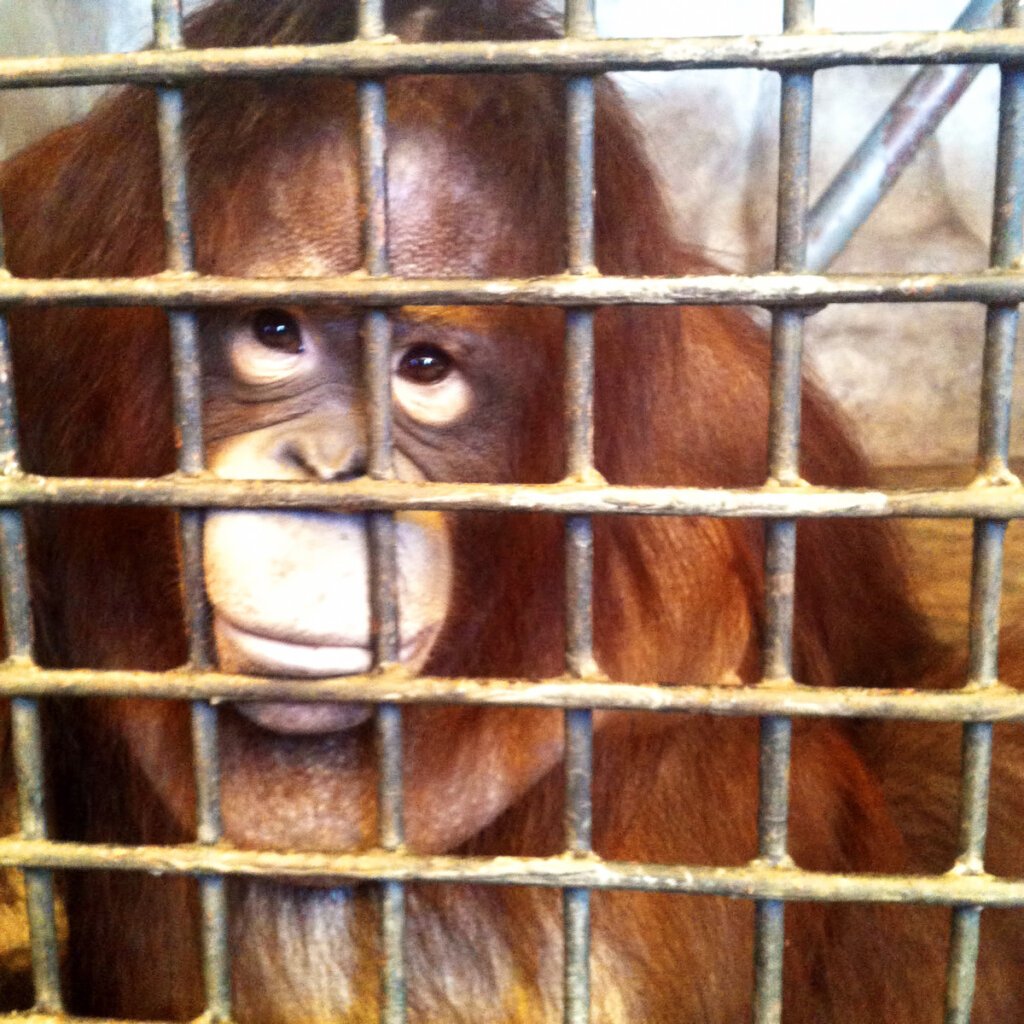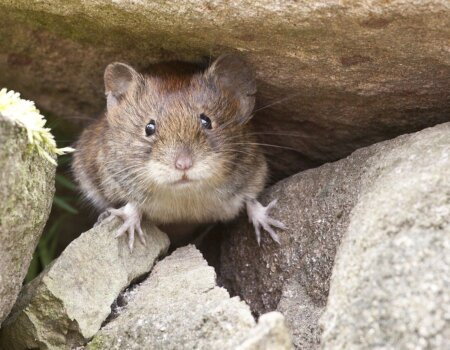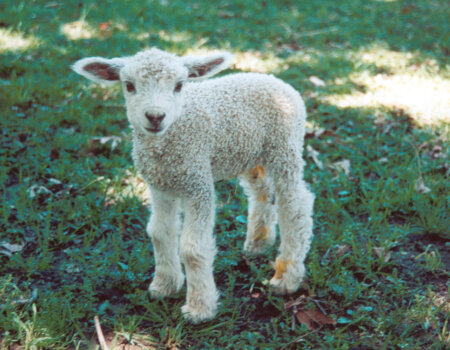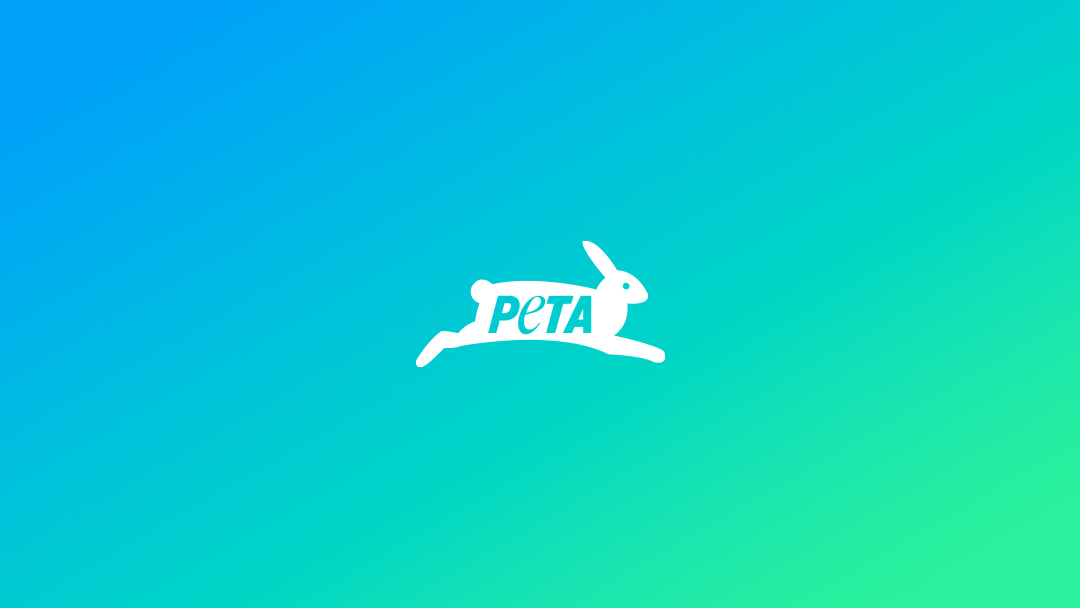
The Cruelty of Wool
Sheep, who are not native to Australia, are gentle individuals who, like all animals, feel pain, fear and loneliness.
But because there is a market for their fleece and skins, they are often treated as nothing more than wool-producing machines.
In nature, sheep grow just enough wool to protect themselves from temperature extremes. The fleece provides effective insulation against both cold and heat. But because of breeding and genetic mutilation, sheep raised by the wool industry produce excessive amounts of wool.

Shearers are usually paid by volume, not by the hour, which encourages fast work without regard for the welfare of the sheep. Says one eyewitness:
“[T]he shearing shed must be one of the worst places in the world for cruelty to animals… I have seen shearers punch sheep with their shears or their fists until the sheep’s nose bled. I have seen sheep with half their faces shorn off…”.
In Australia, many lambs are also forced to endure a gruesome procedure called “mulesing”, in which huge chunks of skin and flesh are cut from the animals’ backsides, sometimes without any painkillers. This is done to prevent a condition called “flystrike”, even though other, humane methods exist.
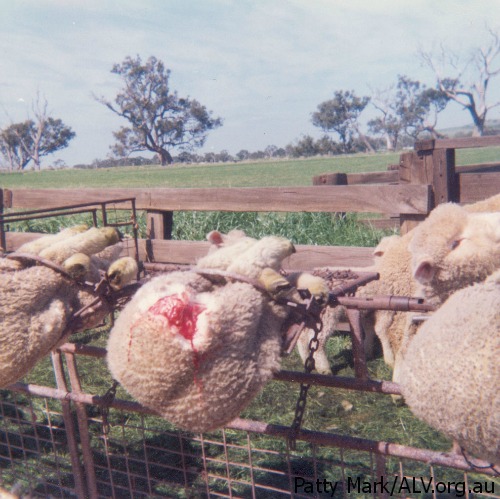
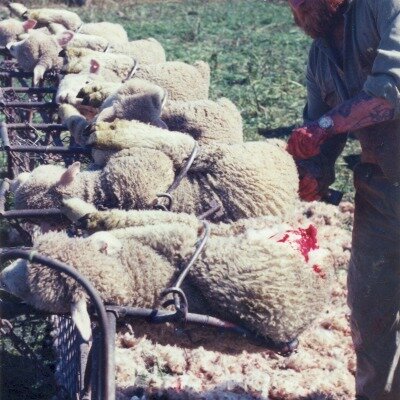
Within weeks of birth, lambs’ ears are hole-punched, their tails are chopped off, and the males are castrated without the use of anaesthetics. Male lambs are castrated when they are between 2 and 8 weeks old, either by making an incision and cutting their testicles out or by using a rubber ring to cut off blood supply – one of the most painful methods of castration possible.
Every year, hundreds of lambs die from exposure or starvation before the age of 8 weeks, and mature sheep die every year from disease, lack of shelter and neglect.
Many of these sheep who survive on the farms are then shipped to the Middle East on crowded, multi-level ships. These live exports, which can last for weeks, go to countries where animal welfare standards are ignored or non-existent. The suffering sheep are forced off the ships, loaded onto trucks and dragged by their ears and legs, often to unregulated abattoirs where their throats are slit while they are still conscious.
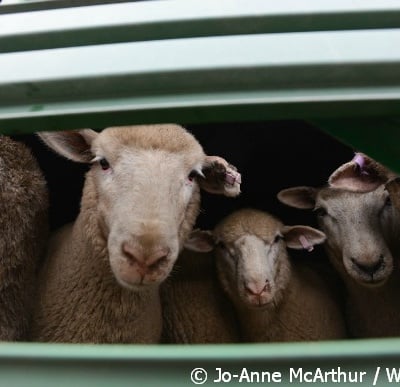
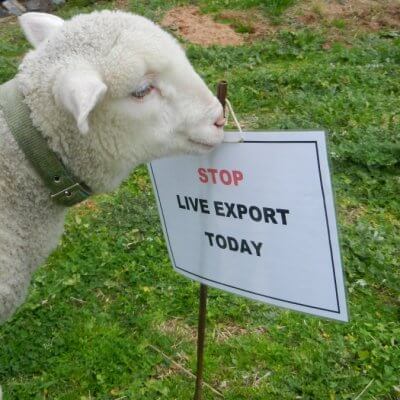
No amount of fluff can hide the fact that anyone who buys wool supports a cruel and bloody industry. There are plenty of durable, stylish and warm fabrics available that don’t contribute to animal suffering. Please join the millions of people all around the world who know that compassion is in fashion.
Save a sheep – don’t buy wool.
Find Out More About Wool:
Wool Investigations | Mulesing | Saleyards | Environmental Hazards of Wool Production | Ultra-Fine Wool
Help Animals in 2025: Renew Your PETA Membership!
